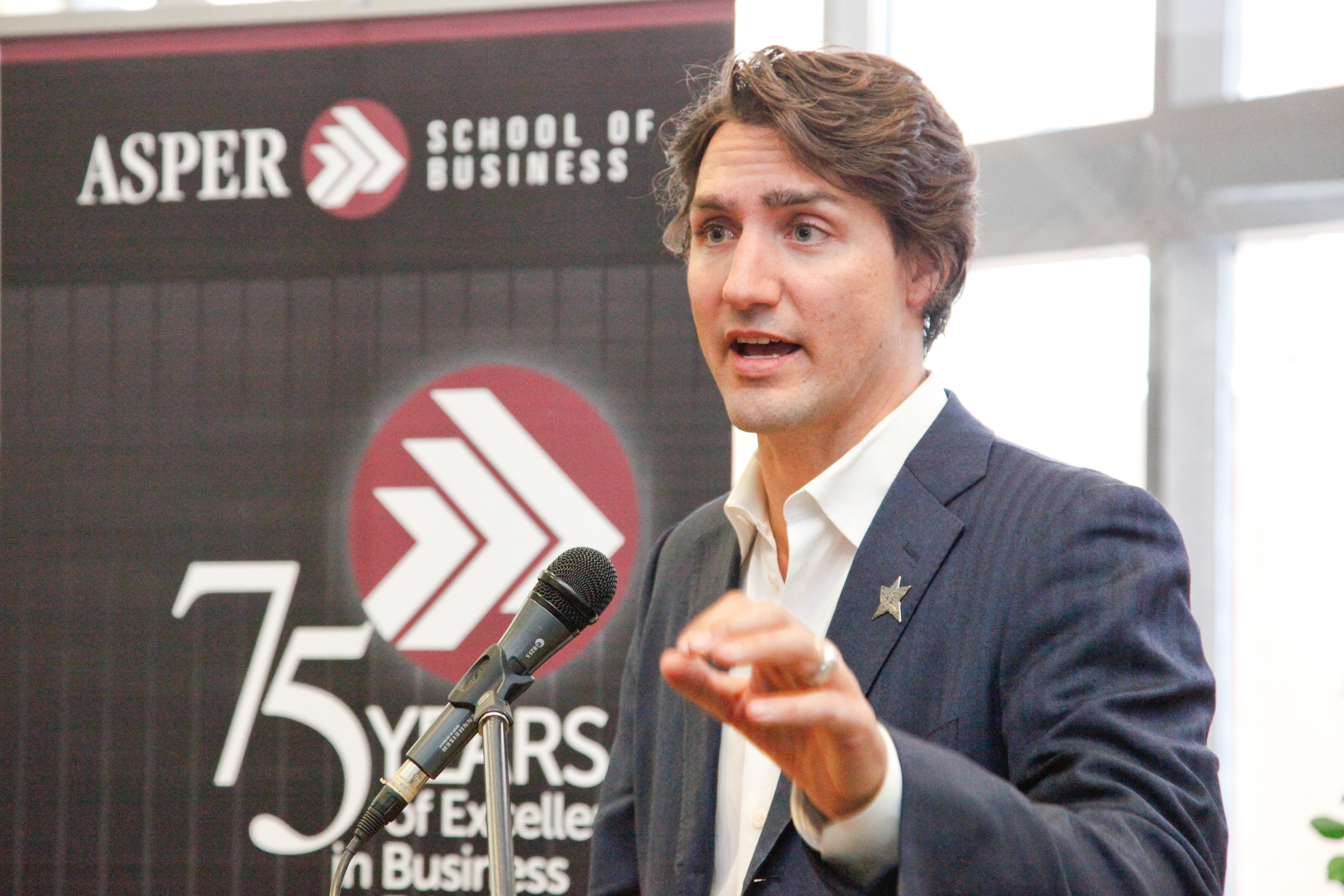Justin Trudeau visited the University of Manitoba on Friday, Feb. 1 in an attempt to gain the attention of the student body. His stop was part of the Liberal leadership campaign, for which all of the candidates for the Liberal Party’s leadership role were in Manitoba for a debate on Feb. 2.
During his speech, Trudeau expressed his concern regarding the public’s disenchantment with politics and how people no longer feel that politics are an effective way to get things done in the Canadian economy.
Canadians have become cynical, said Trudeau, since it has become “a fight about who’s right, not what’s right.”
“Those not voting isn’t a reflection on young people; it’s a reflection on politics,” said Trudeau.
Yet, despite the disinterest in politics, he stated that youths are gaining political interest and becoming mindful of current issues, engaged in trying to make a change. Throughout his campaign across Canada, Trudeau has noticed a lot of support.
During his speech, the Liberal leadership candidate stated that when the Liberals lost confidence and relevance, it forced them to look at what went wrong. They decided to get Canadians involved.
“People are coming out because they want to be a part of something; they want to be engaged and empowered,” said Trudeau.
A recent CBC article commented that Trudeau has relied on the popularity of his father during the leadership campaign. He has refuted this claim by arguing that the younger generation does not identify with his father.
“For young people—particularly young people these days—if you’re not the real deal yourself, they’re not going to pay any attention no matter how much grandma remembers meeting your Dad at a train station,” he said.
Trudeau explained that his goal to get out across Canada is so the right leader can be chosen and to demonstrate that young people are interested in politics and voting. He said that current leaders are disrupting the unity of Canada by playing games.
According to Trudeau, it is important to keep Canada a democracy and, in order to do so, the Liberal Party will commit to not using omnibus bills, which he labelled as short-sighted.
Issues touched upon during the question and answer portion of the speech were the Idle No More movement, low-income populations, mental health, addiction, and the justice system. Trudeau recognized that First Nations groups have been poorly treated by Canadians and said it is important to get it right rather than look at it as a problem to get rid of. He stressed the importance of empowerment through education and action.
Trudeau said that one of his main goals will be the strengthening of the middle class, which he claims has been decreasing. There has been a 13 per cent increase in middle class debt along with an increasing cost of living and a minimal raise in income. He stated that after necessities have been met, it is important to feel valued and respected in the community, and that this could be achieved through education and housing programs.
Trudeau concluded by encouraging listeners that their actions and engagements matter.
“The heart of our democracy is the ideas of the people; a single impact makes a huge difference [ . . . ] we have to believe in our value and the difference we can make.”


